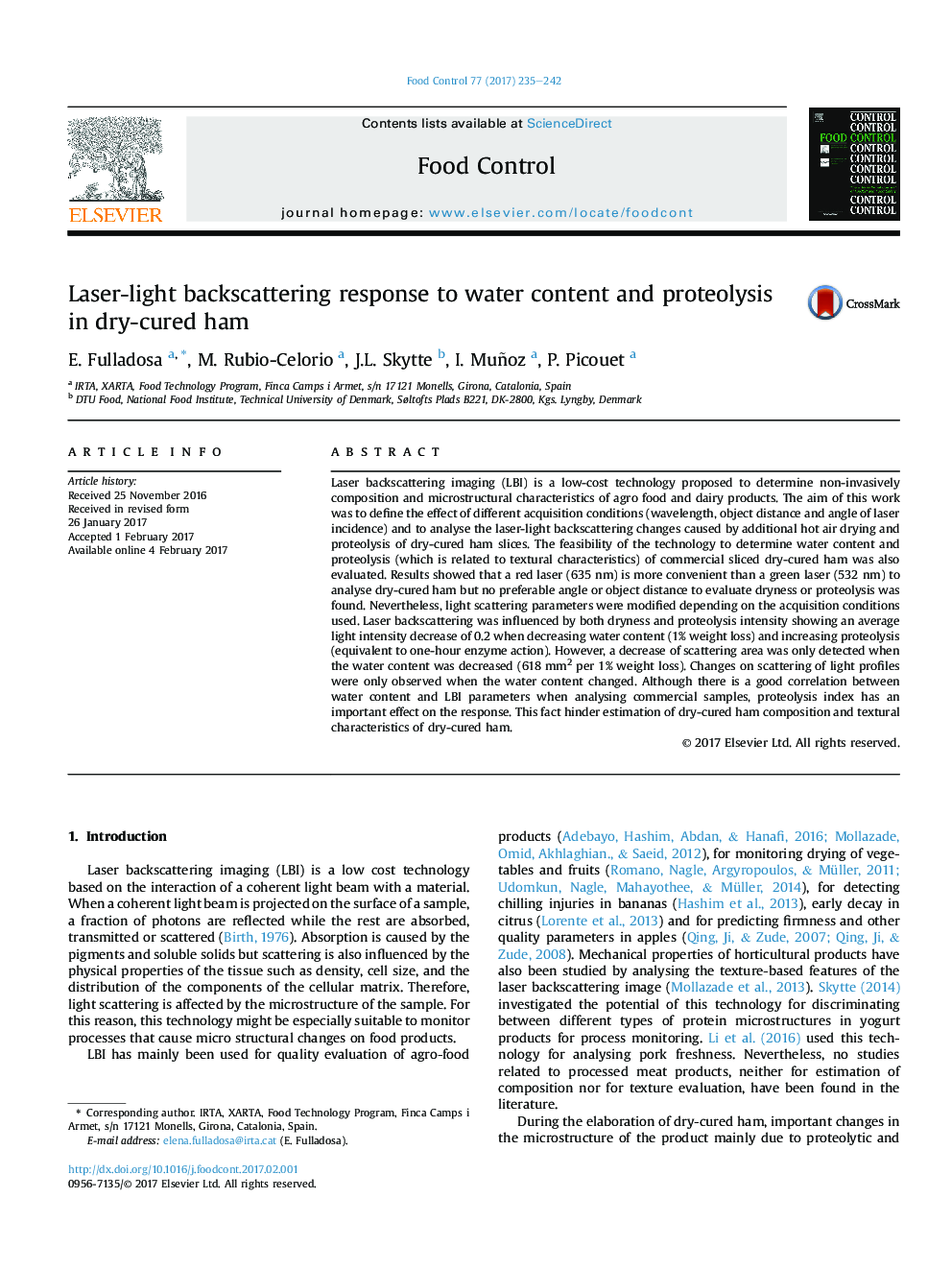| کد مقاله | کد نشریه | سال انتشار | مقاله انگلیسی | نسخه تمام متن |
|---|---|---|---|---|
| 5767574 | 1628387 | 2017 | 8 صفحه PDF | دانلود رایگان |
- Microstructural changes occurring in dry cured ham influence light backscattering.
- Decrease of water content decreases average light intensity and scattering area.
- Increase of proteolysis decreases average light intensity.
- Drying and proteolysis may occur simultaneously and have an effect on light scattering.
- This fact hinders the characterization of texture and composition in commercial samples.
Laser backscattering imaging (LBI) is a low-cost technology proposed to determine non-invasively composition and microstructural characteristics of agro food and dairy products. The aim of this work was to define the effect of different acquisition conditions (wavelength, object distance and angle of laser incidence) and to analyse the laser-light backscattering changes caused by additional hot air drying and proteolysis of dry-cured ham slices. The feasibility of the technology to determine water content and proteolysis (which is related to textural characteristics) of commercial sliced dry-cured ham was also evaluated. Results showed that a red laser (635Â nm) is more convenient than a green laser (532Â nm) to analyse dry-cured ham but no preferable angle or object distance to evaluate dryness or proteolysis was found. Nevertheless, light scattering parameters were modified depending on the acquisition conditions used. Laser backscattering was influenced by both dryness and proteolysis intensity showing an average light intensity decrease of 0.2 when decreasing water content (1% weight loss) and increasing proteolysis (equivalent to one-hour enzyme action). However, a decrease of scattering area was only detected when the water content was decreased (618Â mm2 per 1% weight loss). Changes on scattering of light profiles were only observed when the water content changed. Although there is a good correlation between water content and LBI parameters when analysing commercial samples, proteolysis index has an important effect on the response. This fact hinder estimation of dry-cured ham composition and textural characteristics of dry-cured ham.
Journal: Food Control - Volume 77, July 2017, Pages 235-242
